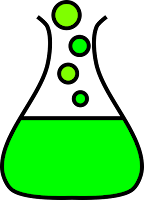Disciplinary Literacy Is Easier When Using a Resource that Supports Content Area Literacy

By Wendi Vogel, Kent ISD Science Consultant and Disciplinary Literacy Task Force Member
Essential Practices for Disciplinary Literacy Instruction in the Secondary Classroom: Grades 6 to 12 focus on literacy in the content area. This brings up a lot of questions around how teachers all over the state might access resources that already utilize Disciplinary Literacy Essentials (DLE) instructional practices in an equitable manner. Then, thinking from a system's lens, how does a district provide this opportunity for each teacher in grades 6-12?
Nationwide, there are science education researchers, classroom teachers, and science education specialists using grant funds to develop Open Education Resources (OERs). These resources focus on phenomenon or problem based learning, which is DLE #1. An entire science unit is written around a phenomenon or problem students will make sense of and be able to explain at a more sophisticated level over time. Some examples from these units include, “How should we search for life beyond Earth?” and “How can containers keep things from warming up or cooling down?” Embedded in these units are opportunities to engage students in disciplinary writing, disciplinary reading, and discourse. The most exciting thing is these resources are being used and supported here in Michigan, at no cost for districts to use. This allows equitable access to high quality curricular resources to every district in Michigan.
What are these OERs and who is using these resources? Kent ISD’s School News Network (SNN) recently published an article highlighting some schools using these OERs in Opening Doors to Science by Erin Albanese. Districts in Kent County, as well as around the state, are either fully adopting or using various parts of these resources to implement the NGSS aligned Michigan Science Standards. Since they also attend to many other disciplinary literacy essentials, OERs allow districts to have a starting point for both science and literacy. These resources include strategies for teaching disciplinary writing, reading, just-in-time academic vocabulary, reflection on student learning (meta moments), as well as an abundance of tools to facilitate academic discourse and sensemaking in small and whole groups. Facilitator guides help educators implement these pieces, all while getting students to figure out that unit phenomenon.
Those in the state using OERs also have support from various science leaders in Michigan. Many teachers in Michigan have written, piloted, contributed to, and provided professional development around OERs, such as Grace Boersma from Godwin Heights High School, as seen in “It’s All Hands-On in Chemistry” (SNN, January 12, 2022). Grace was a pilot teacher for iHUB Chemistry. Dr. Wendy Johnson and Dr. Kristin Meyer, both classroom teachers as well, developed biology and chemistry resources respectively while getting their Ph.D. from MSU with CREATEforSTEM. Holly Hereau and Wayne Wright, former science teachers in Michigan turned curriculum designers at BSCS, were also involved in OER development with iHUB and OpenSciEd. The Math and Science Leadership Network, led by Dr. Mary Starr, supports the pilots for OpenSciEd, currently available for 6-8th grades, as well as the high school level resource still under construction. The MiSTEM Network has also contributed funding for professional learning, scholarships, and support for many OER resources in Michigan, so districts can support these robust resources.
A list of several OERs and their links can be found below. Professional learning is strongly recommended when implementing these units; and, with any science instruction, there is usually a cost for any new materials. Consider what DLE could look like in your district, especially when the science resource itself already attends to DLE #1 for each instructional unit.
Curricular Resources or Lesson Sets (OER or almost OER)
FULL COURSE High School Resources
Facebook page for educator collaboration: https://www.facebook.com/groups/inquiryhubbiology
iHUB Year of Chemistry with some integrated Earth (coming soon, expected summer of 2021 for first unit or two)
Facebook page for educator collaboration: https://www.facebook.com/groups/inquiryhubchemistry
iHUB Physics is in development (integrated with Earth/Space)
OpenSciEd High School: Coming soon, in pilot, similar to iHUB
Interactions, Physical Science for High School
New Visions out of NY, Earth and Physics are designed for use without a textbook, more coming soon
Model Based Biology, Biology Resource, THEY WILL BUILD OUT CA INTEGRATED EARTH
Carbon Time, Life Science/Earth Science/little Chem, 6-12
CREATE for STEM has CESE, Chemistry, Physics); professional learning required at cost, OER coming soon
Michigan Modeling Instruction http://www.mimodelinginstruction.org/
FULL COURSE Middle School Resources
OpenSciEd Middle School
MiSTAR, $300 per teacher subscription
AMTA: Modeling Teachers’ Association and Curriculum, summer professional learning available with stipend funded by MiSTEM Network in MI
Michigan Modeling Instruction http://www.mimodelinginstruction.org/
General High Quality Units, not complete courses
Ambitious Science Teaching (Search Under Tools, check by grade or content to search)
Going 3D with GRC (Lessons set at all levels, not complete units)
Comments
Post a Comment